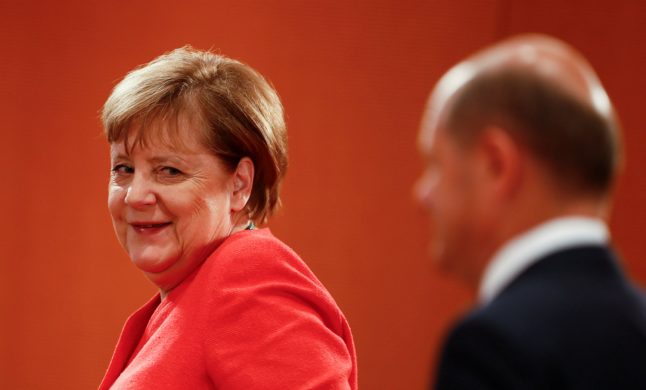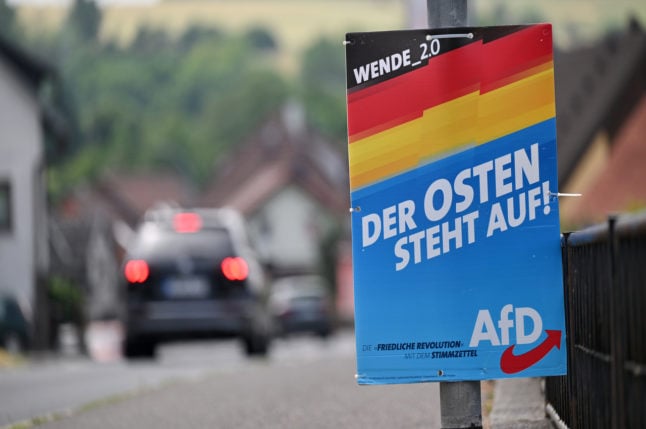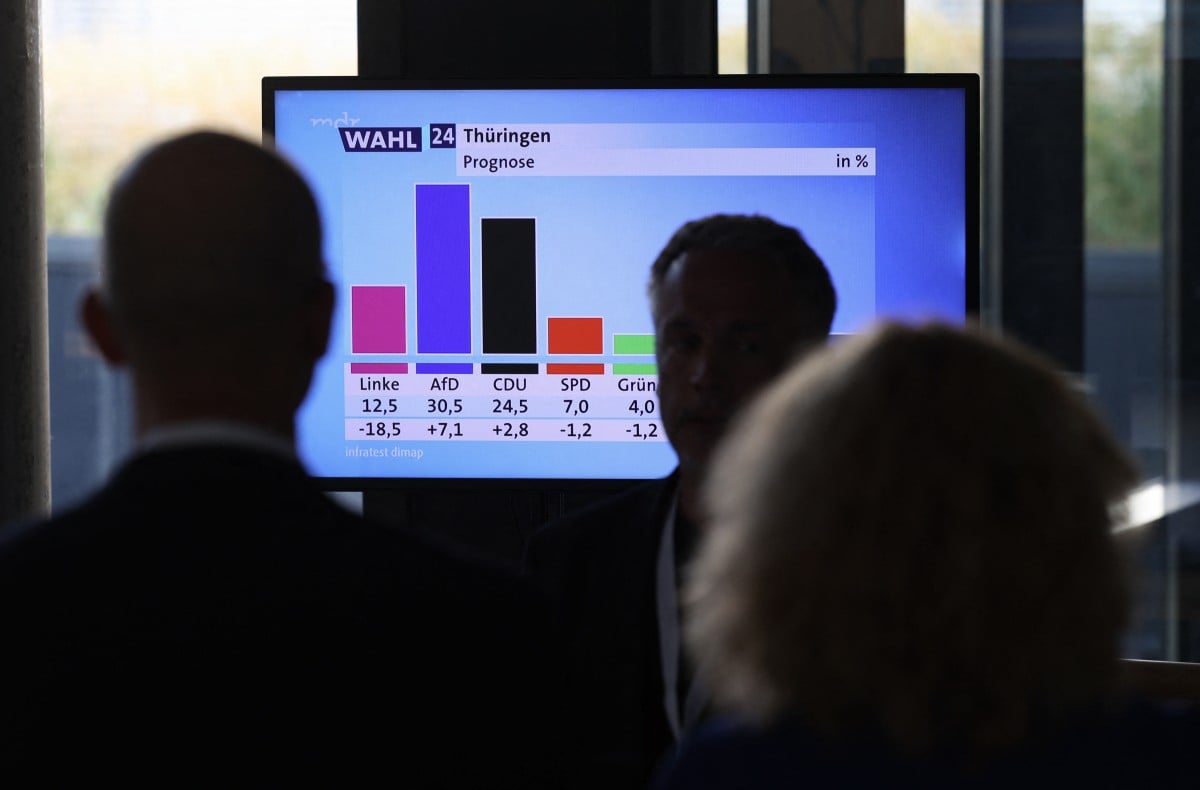Merkel's handling of the coronavirus crisis has been praised across the world. And it appears it's also being recognised by voters in Germany.
Merkel's party, the centre-right Christian Democrats (CDU), and its Bavarian sister party the CSU, increased in popularity among voters to 40 percent, according to a new poll – the highest amount in almost three years.
The CDU and CSU last achieved a similarly strong figure in August 2017, before the federal election campaign began. During this time, the Union managed to gain 32.9 percent.
In the latest ZDF 'Politbarometer' published on Friday, the Union's new result was an improvement by one percent compared to previous weeks.
The centre-left Social Democrats (SPD) remain at 15 percent, the far-right Alternative for Germany (AfD) at nine percent, and the Left Party (die Linke) at seven percent. The Greens lost one point, gaining 19 percent.
And the pro-business Free Democrats (FDP) gained one point to log five percent.
Meanwhile, Merkel remains by far the most popular politician in Germany. On a scale of plus five to minus five, she improved slightly to 2.6 points, followed by CSU leader Markus Söder with 1.9, and Finance Minister Olaf Scholz (SPD) with 1.8.
Interior Minister Horst Seehofer (CSU) gained ground and passed North Rhine-Westphalia's state premier, Armin Laschet. The candidate for the CDU chief position lost points slightly, landing at 0.5.
Overwhelming majority for stricter laws for slaughterhouses
Meanwhile, according to the survey, the vast majority of citizens in Germany are in favour of stricter regulation of slaughterhouses, even if this results in higher prices of meat.
READ ALSO: Germany fights to control coronavirus outbreak at meat plant
A huge 92 percent of those surveyed would support stricter industry laws, according to the ZDF poll. However, only 55 percent of those questioned believed that citizens were generally prepared to spend more money on meat.
Following several outbreaks of coronavirus in meat processing plants, cheap prices for meat products in supermarkets and working conditions in industry are under massive criticism.
READ ALSO: Explained – What you need to know about Germany's new local coronavirus lockdown
Doubts over new app
The new coronavirus app has been downloaded millions of times – but according to the survey, confidence in its effectiveness is relatively low.
Only 38 percent believe that this app will make a major contribution to limiting the pandemic in Germany, the ZDF survey shows.
Supporters of the Greens (62 percent), the FDP (70 percent) and the AfD (90 percent) are particularly critical of the app.




 Please whitelist us to continue reading.
Please whitelist us to continue reading.
ZDF ‘Politbarometer’ – what a joke